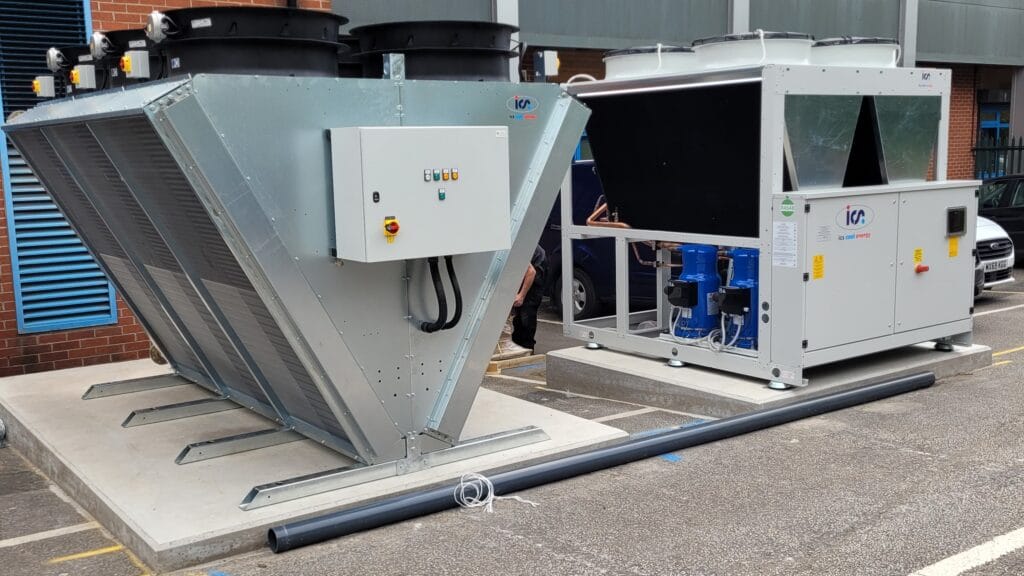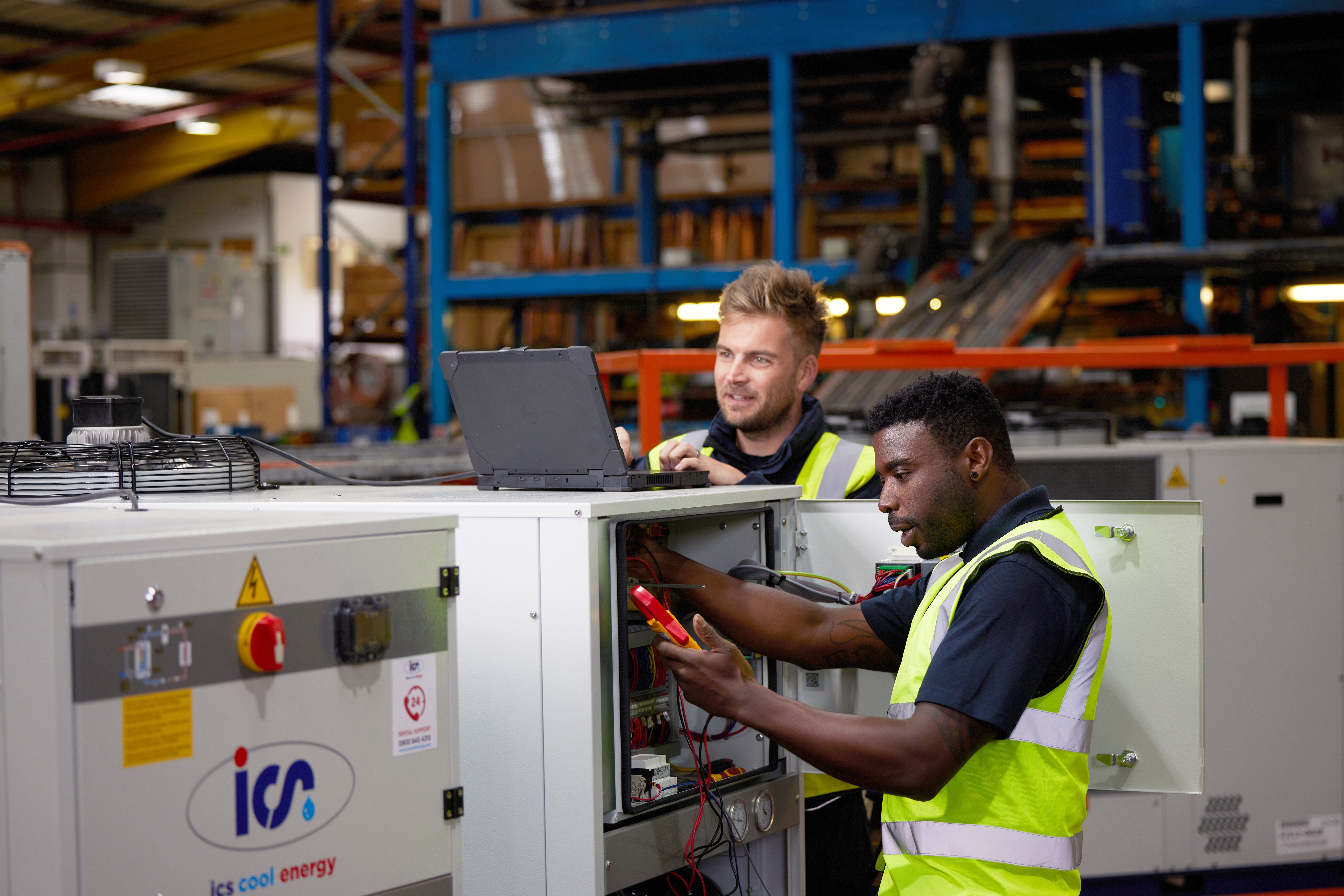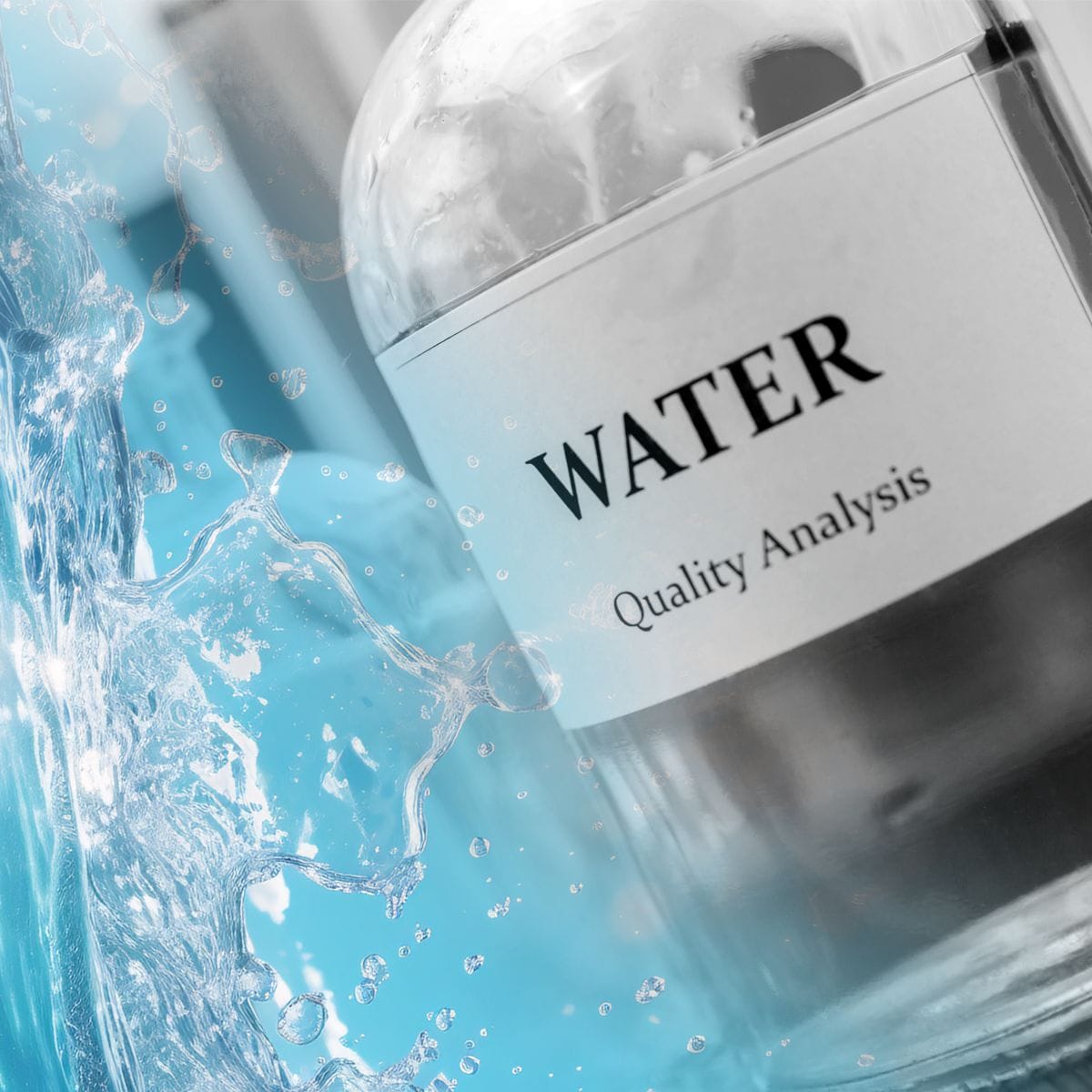Published: November 13, 2025
Winter Maintenance for Adiabatic Cooling Systems. Protecting Performance All Year
Seasonal maintenance is essential for safeguarding adiabatic cooling systems against winter damage, ensuring reliable and efficient operation throughout the year. For engineers and production managers, structured winter maintenance is critical to keeping operational costs low and protecting essential assets.
Adiabatic cooling systems are designed to be a cost-effective and environmentally responsible alternative to traditional cooling towers. These systems combine airflow and evaporative cooling to meet precise process temperature requirements, cycle time reduction and energy efficiency. For most of the year, fans provide the necessary cooling output; a water spray system engages only during periods of elevated ambient temperatures. In standard operation, process fluid is circulated through a condenser, cooled by fans, with a fine water mist sprayed over the condenser coils when outdoor temperatures rise, maximising efficiency and minimising unnecessary water use.
Adiabatic coolers are particularly relevant for sensitive food and beverage sectors such as dairy production, where both thermal control and water hygiene are paramount. Their performance also meets the high standards required in plastics manufacturing, including injection moulding, extrusion, rubber processing, and the growing bioplastics industry.
The core benefits compared to cooling towers, substantial reductions in water usage, lower maintenance requirements, reduced operational costs, and no need for continuous chemical dosing or registration with local authorities, make adiabatic coolers a suitable choice across modern manufacturing and production environments. However, maximum operational efficiency relies on a robust winter maintenance regime.
Winterising the Adiabatic System. Reducing Risk, Protecting Performance
Neglecting winter maintenance can result in serious disruptions, including frozen pipework, equipment failure, costly downtime, and loss of process control. By investing in preventative measures, engineers and production teams ensure stable cooling performance and asset longevity throughout colder months.
Winter Maintenance Checklist:
- Test or Adjust Glycol/Antifreeze Levels: For systems using glycol, verify and adjust the concentration to match the lowest anticipated ambient temperature, ensuring effective freeze protection. In food and beverage or other sensitive applications, confirm that only food-grade glycol or approved fluids are used, and address process fluid purity and safety requirements. For further guidance, see our latest glycol tips.
- Drain and Shut Down Non-Glycol Systems: Where glycol is absent, power down the adiabatic unit and fully drain all water from circuits, spray lines, and pumps to eliminate freeze risk and subsequent damage.
- Apply Trace Heating: Consider trace heating for exposed pipework that cannot be drained, as part of seasonal maintenance.
- Clean Filters and Strainers: Maintain clear flow and prevent blockages through regular winter inspection and cleaning.
- Inspect UV Filtration Units: Confirm operational readiness before cold sets in.
- Check Electrical Systems: Review fan drives, control panels, and sensors; fit protective covers as needed.
- Structured Shutdown & Restart Procedures: Follow manufacturer guidelines for safe decommissioning and efficient recommissioning in spring.
Responsible Asset Management: Long-Term Savings and Reliability
With rising demands for water and energy savings, alongside tighter regulatory standards, winter maintenance for adiabatic coolers is more than just a seasonal task; it’s vital for sustaining process reliability, minimising environmental impact, and ensuring regulatory compliance.This is especially important in industries with stringent requirements for system hygiene, operational continuity, and product integrity, like food, beverage, and plastics processing.
If your adiabatic cooling system is nearing 10 years of service, or showing signs of wear, it may be time to consider other alternatives such as freecooling chillers for superior performance and low lifecycle costs.
ICS Cool Energy works with OEMs and end users to support maintenance, upgrade, and replacement programmes, helping ensure every cooling system remains compliant, efficient, and resilient.
We remain committed to supporting your operations, protecting your investments, and delivering technical advice and service to keep your process running, especially through the challenges of winter.
For tailored winter maintenance strategies or upgrade guidance, contact our expert team today.

Related Articles

November 26, 2025
Why Flexible Financing Options Matter More Than Ever
Navigating Investment in UK Manufacturing As the UK government prepares to deliver the next budget, uncertainty is the prevailing mood, felt on factory floors and...
Read More
October 30, 2025
Meeting the Pressures of Modern OEM Design. Why Accredited Cooling Systems Make the Difference
Tight budgets, compressed timelines, and rising expectations: how OEMs can help ensure reliability and performance of their solutions through smarter cooling partnerships. Original equipment manufacturers...
Read More
October 21, 2025
8 Top Tips For Using Glycol In Your Chiller
Introduction Glycol is a vital additive for chiller systems operating in low temperatures or environments at risk of freezing. Without the right glycol practices, chillers...
Read More